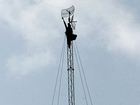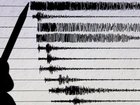Spotlight
President Michel Suleiman will head to Turkey in the upcoming two days to address the case of the 11 kidnapped Lebanese pilgrims in Syria.
According to An Nahar newspaper published on Tuesday, Speaker Nabih Berri revealed the information to the families of the abducted men.
 Full Story
Full Story
U.S. Deputy Secretary of State William Burns is expected to discuss with Lebanese officials this week the repercussions of the Syrian crisis on Lebanon, An Nahar daily reported on Tuesday.
Burns arrives in Beirut on a two-day visit on Thursday and is scheduled to meet with Speaker Nabih Berri, Premier Najib Miqati, al-Mustaqbal bloc leader Fouad Saniora and Army chief Gen. Jean Qahwaji, a high-ranking source told the newspaper.
 Full Story
Full Story
The Jal el-Dib highway was open to traffic on Tuesday as the residents of the area called off their protest after the cabinet decided to build a tunnel to replace the dismantled bridge.
The residents of Jal el-Dib were set to block the highway from 7:00 a.m. until 2:00 p.m. on Tuesday to protest the cabinet’s failure to find a solution to replace the old metal bridge.
 Full Story
Full Story
The cabinet agreed on Monday to hand over the so-called telecom data to security agencies but only within a limited geographic location and after the approval of a three-member expert judicial committee.
The deal was reached after a heated debate between the March 8 coalition ministers of the Change and Reform bloc, Hizbullah and Amal, and the government’s centrists - President Michel Suleiman, Premier Najib Miqati and ministers loyal to Progressive Socialist Party leader Walid Jumblat.
 Full Story
Full Story
Heavy shelling rattled the northern border region of Wadi Khaled overnight as gunmen opened fire along the Lebanese-Syrian border at several illegal crossing points, media reports said on Tuesday.
The Lebanese Red Cross announced that the shelling killed 2 Syrian nationals and a Lebanese.
 Full Story
Full Story
The cabinet on Monday managed to reach a settlement over the case of Sheikh Ahmed Abdul Wahed and his companion and approved a plan to deploy the army on Lebanon’s northern border with Syria, during a session that focused on the turbulent security situation in the country and the draft state budget.
The cabinet also tasked a committee headed by Prime Minister Najib Miqati with following up on the issue of providing security agencies with telecom data, after a recent attempt on MP Boutros Harb’s life sparked fears of a return to political assassinations in the country.
 Full Story
Full Story
The Phalange Party on Monday called on the government and the national dialogue committee to hold an extraordinary meeting “that would take a beneficial resolution, or a ‘Statement Number One’, on disarming all groups without exception.”
The party also called for “defining a clear timeframe and mechanism” for the sought disarmament, in a statement issued after the weekly meeting of its political bureau.
 Full Story
Full Story
Hizbullah voiced on Monday its concern over Saudi Arabia’s actions against religious figures in the kingdom, the last of which was the “wrongful” arrest of Sheikh Nimr al-Nimr.
It urged the Saudi authorities to “halt the undemocratic actions against the peaceful and legitimate demands of Saudi citizens,” calling on them to respect religious figures.
 Full Story
Full Story
The residents of Beirut and the Lebanese coast felt on Monday a 5.6-magnitude earthquake.
Lebanon’s state-run Bhannes Center for Seismic and Scientific Research said that Beirut and its suburbs felt the minor quake, whose epicenter was located between Cyprus and the Greek island of Rhodes.
 Full Story
Full Story
Free Patriotic Movement leader MP Michel Aoun noted on Monday that Lebanon is influenced by all of the developments in the Middle East.
He said during an FPM conference: “Given the very high tensions in the region, we must calm the situation in Lebanon as much as possible in order to prevent an escalation.”
 Full Story
Full Story




